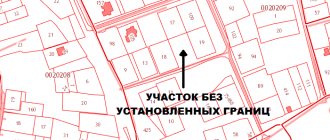Responsible pet ownership is the sole responsibility of pet owners.
Today, the problem of the culture of behavior of pet owners and keeping pets is acute. This is especially evident when walking dogs in public places - cases of dogs attacking other animals, as well as people, have become more frequent in the city.
Requirements for keeping pets are regulated by federal law. Clauses 4 and 5 of Art. 13 of the Federal Law of December 27, 2018 No. 498 “On the Responsible Treatment of Animals” establishes:
1. Walking pets must be carried out under the condition of mandatory ensuring the safety of citizens, animals, and the safety of the property of individuals and legal entities.
2. When walking a pet, the following requirements must be observed:
- exclude the possibility of free, uncontrolled movement of the animal when crossing the roadway, in elevators and common areas of apartment buildings, in the courtyards of such buildings, on children's and sports grounds;
— ensure the cleaning of animal waste products in public places and territories;
- do not allow the animal to walk outside the places permitted by the decision of the local government for animal walking.
The rules established in the city of Rostov-on-Don regulate the procedure for keeping and walking pets (dogs, cats) by their owners. In accordance with these rules, it is prohibited to let animals out to walk on their own, to set dogs on people and animals, to bathe animals in public bathing areas, to walk animals in parks, squares, boulevards, playgrounds and stadiums.
It is allowed to take animals outside for walking, in crowded places, on a short leash. You can let your dog off the leash in free-running areas. The use of a muzzle is mandatory for guard, fighting and vicious dogs.
Clause 3.1. The rules for keeping dogs and cats in the city of Rostov-on-Don, approved by the decision of the Rostov-on-Don City Duma dated August 19, 2003 No. 232, establish that “excrement left by animals in the entrance, elevator, common areas, on playgrounds, sidewalks, etc., must be cleaned by the owner.”
Currently, raids have been organized in the districts of Rostov-on-Don to identify and suppress violations of these rules. If violations are detected, sanctions will be taken against the perpetrators in accordance with regional legislation on administrative offenses in the form of a fine of up to 5,000 rubles.
Veterinary Service of the Irkutsk Region
- Rules for keeping animals
- For animal bites
- List of especially dangerous dog breeds
- Rules for transporting pets through Russian territory
- How to clean up after your dog
Rules for keeping dogs and cats
When handling animals, citizens must be guided by the requirements of Federal Law No. 498-FZ of December 27, 2018 “On the responsible treatment of animals and on amendments to certain legislative acts of the Russian Federation” (hereinafter referred to as Federal Law No. 498), which regulates relations in the field of treatment of animals in in order to protect them, as well as ensure the safety and legitimate interests of citizens when handling animals.
According to Article 9 of Federal Law No. 498:
1. General requirements for keeping animals by their owners include:
1) ensuring proper care of animals;
2) ensuring the timely provision of veterinary care to animals and the timely implementation of mandatory preventive veterinary measures in accordance with the requirements of this Federal Law, other federal laws and other regulatory legal acts of the Russian Federation governing relations in the field of veterinary medicine;
3) taking measures to prevent the appearance of unwanted offspring in animals;
4) provision of animals at the place of their detention at the request of officials of state supervisory authorities in the field of treatment of animals when they conduct inspections;
5) implementation of biological waste management in accordance with the legislation of the Russian Federation.
2. In case of refusal of ownership of an animal or the impossibility of its further maintenance, the owner of the animal is obliged to transfer it to a new owner or to an animal shelter that can provide conditions for keeping such an animal.
In accordance with Article 11 of Federal Law No. 498, animals must be protected from cruelty.
When handling animals the following are not allowed:
1) refusal of animal owners to fulfill their obligations to maintain animals until they are placed in animal shelters or disposed of in another legal way;
2) trade in animals in places not specifically designated for this.
Based on Article 13 of Federal Law No. 498:
1. When keeping pets, their owners must comply with the general requirements for keeping animals, as well as the rights and legitimate interests of persons living in an apartment building in which pets are kept.
2. The use of pets in business activities is not permitted, except in cases established by the Government of the Russian Federation.
3. The maximum number of pets in places where animals are kept is determined based on the owner’s ability to provide the animals with conditions that comply with veterinary standards and regulations, as well as taking into account compliance with sanitary and epidemiological rules and regulations.
4. Walking pets must be carried out under the condition of mandatory ensuring the safety of citizens, animals, and the safety of the property of individuals and legal entities.
5. When walking a pet, the following requirements must be observed:
1) exclude the possibility of free, uncontrolled movement of the animal when crossing the roadway, in elevators and common areas of apartment buildings, in the courtyards of such buildings, on playgrounds and sports grounds;
2) ensure the cleaning of animal waste products in public places and territories;
3) do not allow the animal to walk outside the places permitted by the decision of the local government for animal walking.
6. Walking a potentially dangerous dog without a muzzle and a leash, regardless of the place of walking, is prohibited, except in cases where the potentially dangerous dog is located in a fenced area owned by the owner of the potentially dangerous dog by right of ownership or other legal basis. A warning sign about the presence of this dog must be made at the entrance to this territory.
For violation of the requirements of this Federal Law, animal owners and other persons bear administrative, criminal and other liability in the manner established by the legislation of the Russian Federation.
Government of the Irkutsk region Official portal
Found a mistake? Let us know
Website development: OSAU "Information and Technical Center of the Irkutsk Region"
In the Moscow region, starting from June 26, 2021, liability will be introduced for violating the rules for walking pets.
On 06/08/2021, Law of the Moscow Region No. 102/2021-OZ “On Amendments to the Law of the Moscow Region “Code of the Moscow Region on Administrative Offenses” was adopted, which establishes the administrative liability of dog owners for violating the rules for keeping and walking them.
| 66.33 KiB [] | Law of the Moscow Region on rules for walking pets Uploaded to the site: 06/23/2021 |
The adoption of this Law is due to the increasing number of cases of injury to residents of the Moscow region as a result of attacks by dogs that were walked without a leash or muzzle, and an increase in the number of complaints about keeping dogs in apartment buildings and adjacent areas.
The legislation of the Moscow region defines the following rules for keeping animals:
- clean up after your pet in public places, including common areas of apartment buildings;
- when crossing the carriageway of a highway, as well as in the entrances and elevators of apartment buildings, in the courtyards of residential buildings, on sports grounds, in areas adjacent to educational and medical organizations and other public places, dogs must walk only on a leash and muzzle;
- the dog is not allowed to be on playgrounds, in the territories of preschool educational and general education organizations;
- in public places, puppies under three months of age and decorative dogs up to 25 centimeters tall at the withers may be without a muzzle, but must have a leash or other means of control, for example in a carrier;
- Do not leave dogs unattended in public places.
For violation of these rules, the new edition of the Moscow Region Code of Administrative Offenses establishes administrative fines
- if the owner does not clean up after his pet, he will receive a warning the first time, and subsequently a fine of 500 to 1,500 rubles;
- if the dog is walking without a leash and muzzle, then first a warning; in case of repeated violation, the fine will be from 1000 to 2000 rubles;
- for finding dogs on playgrounds, in the territories of preschool educational and general education organizations, the owner will be fined from 1,000 to 2,000 rubles;
- if the dog caused damage to someone else’s property - a fine of 1,500 to 2,000 rubles;
- for a dog attacking another domestic animal, causing injury or death - a fine of 4,000 to 5,000 rubles;
- If a dog attacks a person, a fine of 5,000 rubles will be imposed on the owner.
The Ministry of Agriculture and Food of the Moscow Region hopes that the adoption of this Law will create favorable living conditions for all residents of the Moscow Region.
Responsibility for improper care of animalsPrint version
July 31, 2019
Responsibility for improper keeping of animals
In connection with emerging questions about the qualification of actions related to the improper keeping of animals by individuals on the territory of the Nenets Autonomous Okrug, the district prosecutor's office proposes to be guided by the following legal position.
Rules for keeping animals are established by federal legislation, regional and local regulations.
Thus, the rules for keeping animals are contained in a number of regulatory legal acts at the federal level, which have not yet been challenged, remain in force and are subject to application. Among such acts: Law of the Russian Federation dated May 14, 1993 No. 4979-1 “On Veterinary Medicine”, Federal Law dated March 30, 1999 No. 52-FZ “On the sanitary and epidemiological welfare of the population”, sanitary and epidemiological rules and regulations “Prevention of parasitic diseases” on the territory of the Russian Federation, etc.
By virtue of Article 13 of the Federal Law of December 27, 2018 No. 498-FZ “On the Responsible Treatment of Animals and on Amendments to Certain Legislative Acts of the Russian Federation,” walking pets must be carried out subject to the mandatory provision of the safety of citizens, animals, the safety of property of individuals and legal entities.
When walking a pet, the following requirements must be observed:
exclude the possibility of free, uncontrolled movement of animals when crossing the roadway, in elevators and common areas of apartment buildings, in the courtyards of such buildings, on children's and sports grounds; ensure the cleaning of animal waste products in public places and territories; do not allow the animal to walk outside the places permitted by the decision of the local government for animal walking. Violation of the above rules for keeping and handling animals is subject to administrative, criminal and civil liability.
The Code of the Russian Federation on Administrative Offenses (hereinafter referred to as the Code of Administrative Offenses of the Russian Federation) provides for administrative liability for violation of legislation in the field of ensuring the sanitary and epidemiological well-being of the population and violation of veterinary and sanitary rules.
For violations of legislation in the field of ensuring the sanitary and epidemiological well-being of the population, liability is provided for:
— Article 6.3 of the Code of Administrative Offenses of the Russian Federation (violation of legislation in the field of ensuring the sanitary and epidemiological well-being of the population).
Involves a warning or the imposition of an administrative fine on citizens in the amount of one hundred to five hundred rubles; for officials - from five hundred to one thousand rubles; for persons carrying out entrepreneurial activities without forming a legal entity - from five hundred to one thousand rubles or administrative suspension of activities for a period of up to ninety days; for legal entities - from ten thousand to twenty thousand rubles or administrative suspension of activities for a period of up to ninety days.
— Article 6.4 of the Code of Administrative Offenses of the Russian Federation (violation of sanitary and epidemiological requirements for the operation of residential premises and public premises, buildings, structures and transport).
Involves the imposition of an administrative fine on citizens in the amount of five hundred to one thousand rubles; for officials - from one thousand to two thousand rubles; for persons carrying out entrepreneurial activities without forming a legal entity - from one thousand to two thousand rubles or administrative suspension of activities for a period of up to ninety days; for legal entities - from ten thousand to twenty thousand rubles or administrative suspension of activities for a period of up to ninety days.
— Article 7.17 of the Code of Administrative Offenses of the Russian Federation (destruction or damage to someone else’s property).
Shall entail the imposition of an administrative fine in the amount of three hundred to five hundred rubles.
— Article 10.6 of the Code of Administrative Offenses of the Russian Federation (violation of animal quarantine rules or other veterinary and sanitary rules).
Involves the imposition of an administrative fine on citizens in the amount of five hundred to one thousand rubles; for officials - from three thousand to five thousand rubles; for persons carrying out entrepreneurial activities without forming a legal entity - from three thousand to five thousand rubles or administrative suspension of activities for a period of up to ninety days; for legal entities - from ten thousand to twenty thousand rubles or administrative suspension of activities for a period of up to ninety days.
The following are authorized to consider cases of administrative offenses:
Bodies exercising federal state sanitary and epidemiological supervision consider cases of administrative offenses provided for in Articles 6.3, 6.4 of the Code of Administrative Offenses of the NAO (Office of Rospotrebnadzor for the NAO, Naryan-Mar, Aviatorov St., 7, t.8(81853)4- 21-58, email: [email protected] ).
Bodies exercising state veterinary supervision consider cases of administrative offenses provided for in Article 10.6 (State Veterinary Inspectorate of the Nenets Autonomous Okrug, Naryan-Mar, Veterinary Proezd, 5, t. 8(81853)2-12-73, email: [email protected] ).
In addition, residents of the district can contact the service for catching stray animals by fax at 8 (81853) 2-30-27, by e-mail, and also by mobile phone.
Criminal liability.
For causing grievous harm through negligence during an animal attack, criminal liability is provided, including arrest for up to six months. It also provides for criminal liability for cruelty to an animal, with the aim of causing it pain and (or) suffering, as well as for hooligan or mercenary motives, resulting in its death or injury. This act is punishable by a fine of up to 80 thousand rubles. or in the amount of wages or other income for a period of up to six months, or compulsory work for a period of up to 360 hours, or correctional labor for a period of up to one year, or restriction of freedom for a period of up to one year, or arrest for a period of up to six months, or imprisonment for a term of up to three years (part 1 of article 118, part 1 of article 245 of the Criminal Code of the Russian Federation).
For the commission of this act by a group of persons, or in relation to several animals, in the presence of a minor, using sadistic methods or with a public demonstration, criminal liability is provided for up to imprisonment for a term of three to five years (Part 2 of Article 245 of the Criminal Code of the Russian Federation).
Civil liability
Damage caused by an animal to the health or property of others must be compensated by the owner of the animal. In addition, compensation for moral damage may be recovered from the owner in favor of the victim (Articles 151, 1064, 1101 of the Civil Code of the Russian Federation).
If it is necessary to provide assistance in preparing and sending an application to the court, a citizen has the right to contact the district prosecutor's office with an appropriate appeal.
Thus, by virtue of Article 45 of the Civil Procedure Code of the Russian Federation, the prosecutor has the right to apply to the court in defense of the rights, freedoms and legitimate interests of citizens, an indefinite number of persons or the interests of the Russian Federation, constituent entities of the Russian Federation, and municipalities.
The basis for which is the appeal of citizens to him for the protection of family, motherhood, paternity and childhood; health protection, including medical care; ensuring the right to a favorable environment. Creation date: 07/31/2019
Who should I complain to if caring for animals causes inconvenience to others?
More often, stray animals are found in public areas managed by legal entities or administrations of cities and towns.
In such cases, you can contact them. In Moscow this is a district government, in a village - the administration of a rural settlement, in a dacha or on the territory where garages are located - the board of a partnership or cooperative. But you should not expect that after an appeal, a team like the subdepartment for clearing the Moscow communal farm of stray animals will be sent. With the adoption of the Law on the Responsible Treatment of Animals, their extermination was replaced by “OCVV” - “catch, sterilize, vaccinate, release.” This means that homeless animals on our streets have been given legal status, and they cannot be harmed. City services must ensure that after catching animals, they are taken to a shelter. There they will be sterilized, vaccinated, kept for a while so that they have a chance to find an owner, and then those who do not show aggression will be released into the wild. That is, now stray animals are recognized as part of city life, and not an annoying nuisance that needs to be destroyed at the first opportunity.
If the matter occurs on the territory of a dacha partnership or garage cooperative, then the board may prohibit feeding the animals, but it does not have the right to decide on their extermination. Such actions may fall under the scope of the new version of Art. 245 of the Criminal Code of the Russian Federation: causing pain and suffering to an animal, resulting in its death or injury, is punishable by imprisonment for up to three years; the same acts, but in relation to several animals - imprisonment for a term of three to five years.








